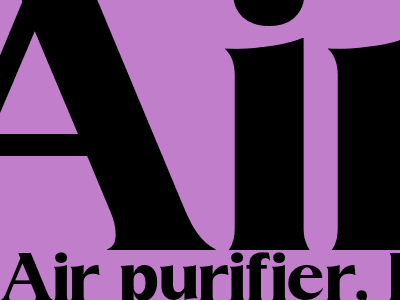
**Air Purifiers: Combating Pollution and Enhancing Indoor Air Quality**
**The Rising Concerns of Air Pollution**
Air pollution has become a pervasive issue globally, posing significant threats to human health and well-being. Exposure to harmful pollutants, such as particulate matter (PM), nitrogen dioxide (NO2), and ozone (O3), can cause a range of respiratory and cardiovascular problems, including asthma, bronchitis, and heart disease.
**The Role of Air Purifiers**
Air purifiers emerged as a solution to combat indoor air pollution, effectively removing harmful pollutants from the air we breathe. These devices utilize various technologies, including HEPA filters, activated carbon filters, and ionizers, to capture and eliminate airborne particles, gases, and odors.
**Types of Air Purifiers**
Various types of air purifiers exist, each with its own unique filtration system:
- **HEPA (High-Efficiency Particulate Air) Filters:** Capture up to 99.97% of airborne particles as small as 0.3 microns, including dust, pollen, and mold spores.
- **Activated Carbon Filters:** Remove gases and odors by trapping them in activated carbon's porous structure.
- **Ionizers:** Release negative ions into the air, which attach to pollutants and neutralize them.
**Choosing the Right Air Purifier**
Selecting the optimal air purifier for your needs involves considering several factors:
- **Room Size:** Determine the size of the room where the purifier will be used to ensure adequate coverage.
- **Pollutant Type:** Identify the specific pollutants you want to target, such as dust, pollen, or smoke.
- **Filtration Efficiency:** Choose a purifier with a high CADR (Clean Air Delivery Rate), indicating the volume of air the device can clean per minute.
- **Noise Level:** Consider the noise level of the purifier, especially if it will be used in a bedroom or other quiet space.
**Benefits of Using Air Purifiers**
Air purifiers offer numerous benefits for indoor air quality:
- **Reduced Allergens:** They effectively remove allergens such as pollen, dust mites, and pet dander, improving symptoms for allergy sufferers.
- **Improved Respiratory Health:** Air purifiers help reduce exposure to harmful pollutants, minimizing respiratory problems like asthma and bronchitis.
- **Odor Control:** They eliminate unpleasant odors from cooking, pets, and other sources, creating a fresher and more inviting indoor environment.
**Conclusion**
Air purifiers play a vital role in combating indoor air pollution and enhancing the air we breathe. By choosing the right air purifier for your needs, you can effectively reduce harmful pollutants, improve respiratory health, and create a more comfortable and healthy indoor environment.